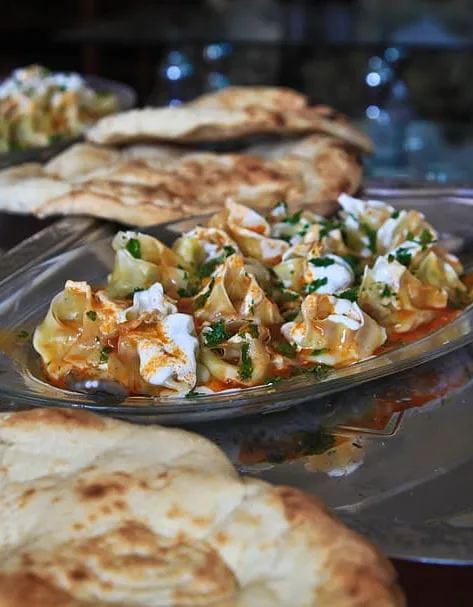Lebanese cuisine is renowned for its rich flavors, aromatic spices, and a harmonious blend of fresh ingredients. Beyond the gastronomic pleasure it offers, the Lebanese food culture also places a strong emphasis on Best Lebanese Food and Sustainability. In this blog, we’ll delve into the realm of the best Lebanese food, focusing particularly on traditional Middle Eastern desserts, with the spotlight on the exquisite Mahalabia, a rose water milk pudding that encapsulates the essence of Lebanese sweetness.
Lebanese Culinary Delights and Sustainability
Lebanese cuisine is not just about satisfying taste buds; it’s a celebration of sustainability and harmony with nature. The use of locally sourced, fresh ingredients is a cornerstone of Lebanese culinary practices. From farm to table, the emphasis on sustainability is evident, supporting local farmers and reducing the carbon footprint associated with food production and transportation.
Best Lebanese Food: A Gastronomic Journey
Lebanese cuisine offers a delightful journey through a myriad of flavors and textures. From the iconic mezze platters featuring hummus, falafel, and tabbouleh to hearty mains like kebabs and shawarma, Lebanese food caters to diverse palates. The extensive use of olive oil, fresh herbs, and spices not only enhances the taste but also contributes to the nutritional value of the dishes.
Traditional Middle Eastern Desserts: Sweet Endings
No exploration of Lebanese cuisine is complete without delving into the realm of Middle Eastern desserts. These sweets are an integral part of Lebanese culture, often served with a cup of strong Arabic coffee. Let’s unravel the magic of traditional Middle Eastern desserts that elevate the dining experience.
Mahalabia: A Sweet Symphony of Rose Water and Milk
One standout among Middle Eastern desserts is Mahalabia (Rose Water Milk Pudding), a creamy and delicately flavored rose water milk pudding. This dessert encapsulates the essence of Lebanese sweetness, offering a perfect balance of texture and taste. The use of rose water adds a floral note that is both refreshing and indulgent.
Ingredients for Mahalabia: A Harmony of Simple Goodness
Mahalabia is a testament to the simplicity of Lebanese desserts. The basic ingredients include milk, sugar, rice flour, and the distinctive rose water. The combination of these elements creates a velvety, smooth pudding that melts in your mouth. The dish is often garnished with pistachios or a sprinkle of ground cinnamon, adding a delightful crunch and visual appeal.
Mahalabia and Sustainability: A Sweet Commitment
Beyond its delectable taste, Mahalabia reflects the commitment to sustainability in Lebanese cuisine. The use of locally sourced milk and supporting small-scale dairy farmers ensures a sustainable supply chain. Additionally, the reliance on traditional ingredients minimizes the environmental impact associated with processed or imported goods.
FAQs About Mahalabia and Lebanese Desserts
Q1: Is Mahalabia difficult to make at home? A: Not at all! Mahalabia is relatively easy to prepare, requiring simple ingredients and basic cooking skills. You can find numerous authentic recipes online to guide you through the process.
Q2: Can I substitute rose water in Mahalabia with other flavors? A: While rose water is the traditional choice, you can experiment with other floral essences like orange blossom water for a unique twist. However, keep in mind that the distinct aroma of rose water is what makes Mahalabia truly Lebanese.
Q3: Are Lebanese desserts only for special occasions? A: While some desserts are reserved for celebrations and gatherings, many Lebanese sweets, including Mahalabia, are enjoyed as everyday treats. The diverse range of desserts caters to various occasions and moods.
Q4: How can I ensure the sustainability of Lebanese desserts at home? A: Opt for locally sourced and organic ingredients when possible. Support local farmers and markets, and be mindful of your food choices to contribute to a more sustainable culinary experience.
Conclusion: Savoring the Sweetness of Lebanese Tradition
Lebanese cuisine is a treasure trove of flavors, and its commitment to sustainability adds a layer of depth to the dining experience. Traditional Middle Eastern desserts like Mahalabia not only satisfy the sweet tooth but also embody the essence of Lebanese culture. As you embark on a culinary journey through the best Lebanese food, savor the sweetness of tradition and sustainability in every bite.
